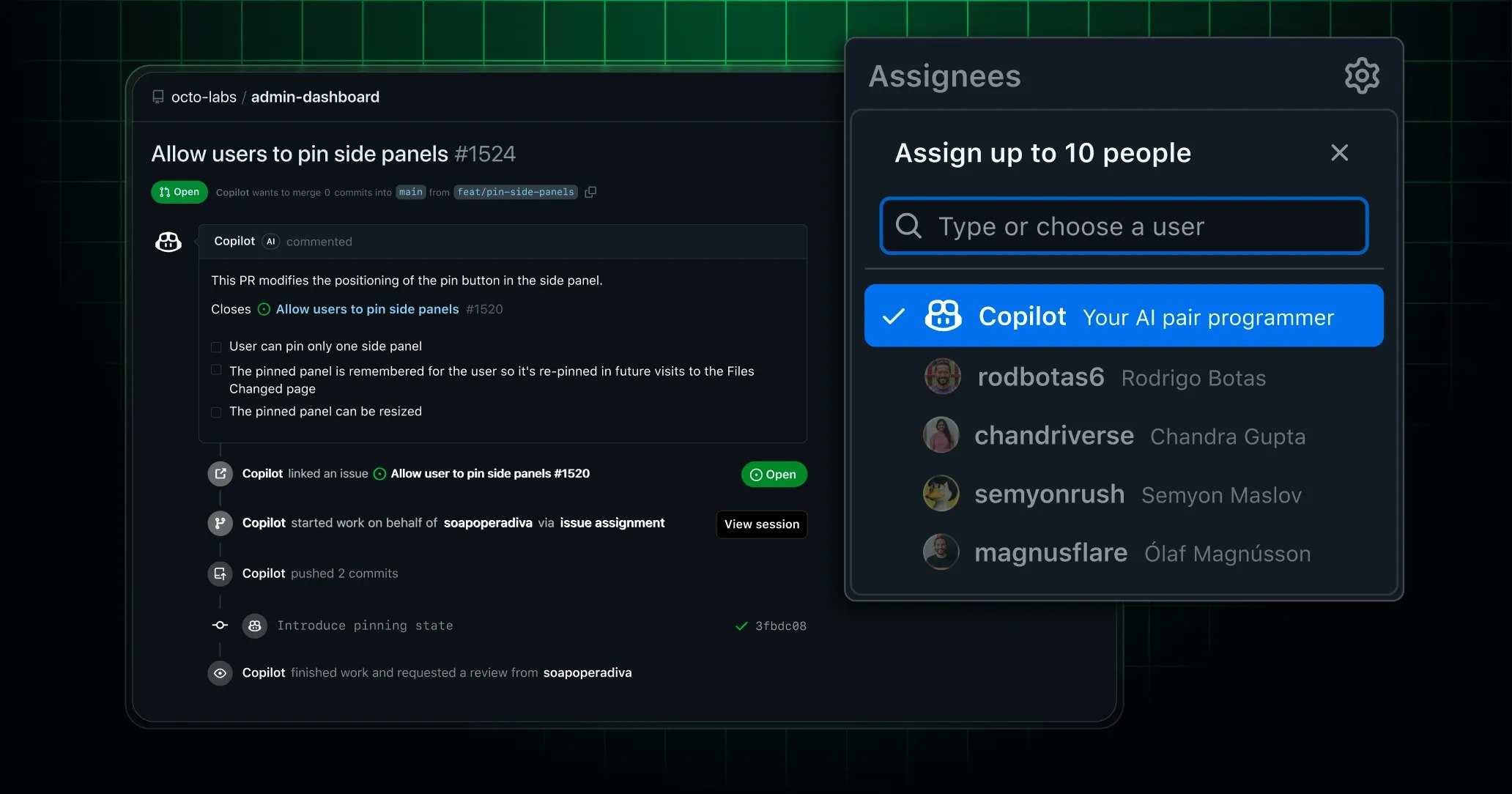
Table of Contents
Overview
Tired of spending countless hours on repetitive coding tasks? Imagine an AI assistant that can autonomously handle bug fixes, implement new features, and even generate documentation, freeing you up to focus on the bigger picture. Enter GitHub Copilot Coding Agent, a revolutionary tool designed to streamline your development workflow and boost your team’s productivity. Let’s dive into what makes this agent a game-changer for developers.
Key Features
GitHub Copilot Coding Agent boasts a powerful set of features designed to automate and enhance your coding experience:
- Autonomous code generation and editing: The agent can independently write and modify code based on assigned tasks, significantly reducing manual effort.
- Integration with GitHub Actions for CI/CD: Seamlessly integrates with your existing CI/CD pipeline through GitHub Actions, automating the build, test, and deployment process.
- Real-time collaboration via pull requests: All changes are submitted through pull requests, enabling real-time collaboration and code review among team members.
- Support for multiple programming languages: Works with a wide range of programming languages, making it a versatile tool for diverse projects.
- Compatibility with various IDEs, including VS Code: Easily integrates with popular IDEs like VS Code, providing a familiar and efficient development environment.
How It Works
The magic behind GitHub Copilot Coding Agent lies in its ability to understand and execute coding tasks autonomously. When you assign a task, the agent springs into action. First, it initializes a virtual environment to isolate the project. Then, it clones the repository and meticulously analyzes the codebase to understand the project’s structure and dependencies. Based on this analysis, it performs the required coding tasks, pushing changes to a draft pull request. This allows developers to monitor the agent’s progress, provide feedback, and ensure the code meets the project’s standards.
Use Cases
GitHub Copilot Coding Agent offers a wide array of applications, making it a valuable asset for various development scenarios:
- Automating repetitive coding tasks: Free up developers from mundane tasks like boilerplate code generation, allowing them to focus on more complex challenges.
- Refactoring legacy code: Simplify and modernize older codebases by automating the refactoring process, improving maintainability and performance.
- Implementing new features: Accelerate the development of new features by automating the coding process, reducing time-to-market.
- Generating documentation: Automatically generate documentation for your codebase, ensuring that it is up-to-date and easy to understand.
- Assisting in code reviews: The agent’s pull requests can highlight potential issues and suggest improvements, streamlining the code review process.
Pros & Cons
Like any powerful tool, GitHub Copilot Coding Agent has its strengths and weaknesses. Understanding these can help you determine if it’s the right fit for your development needs.
Advantages
- Increases development efficiency by automating repetitive tasks.
- Reduces manual coding errors through AI-powered code generation.
- Enhances collaboration through automated pull requests and code review assistance.
Disadvantages
- May require oversight to ensure code quality and adherence to project standards.
- Potential limitations in understanding complex project contexts and nuanced requirements.
How Does It Compare?
While GitHub Copilot Coding Agent is a strong contender in the AI coding assistant space, it’s important to consider its competitors. Cursor offers similar AI coding assistance but lacks the deep GitHub integration that makes Copilot Coding Agent so powerful. Replit Ghostwriter provides AI code suggestions within the Replit environment, but it’s less integrated with GitHub workflows, making it less suitable for teams that rely heavily on GitHub for collaboration and CI/CD.
Final Thoughts
GitHub Copilot Coding Agent is a promising tool for developers looking to automate their workflow and boost productivity. Its deep integration with GitHub Actions, autonomous coding capabilities, and real-time collaboration features make it a valuable asset for teams of all sizes. While it’s important to be mindful of its potential limitations and ensure proper oversight, the benefits of increased efficiency and reduced manual effort make it a compelling option for modern software development.

